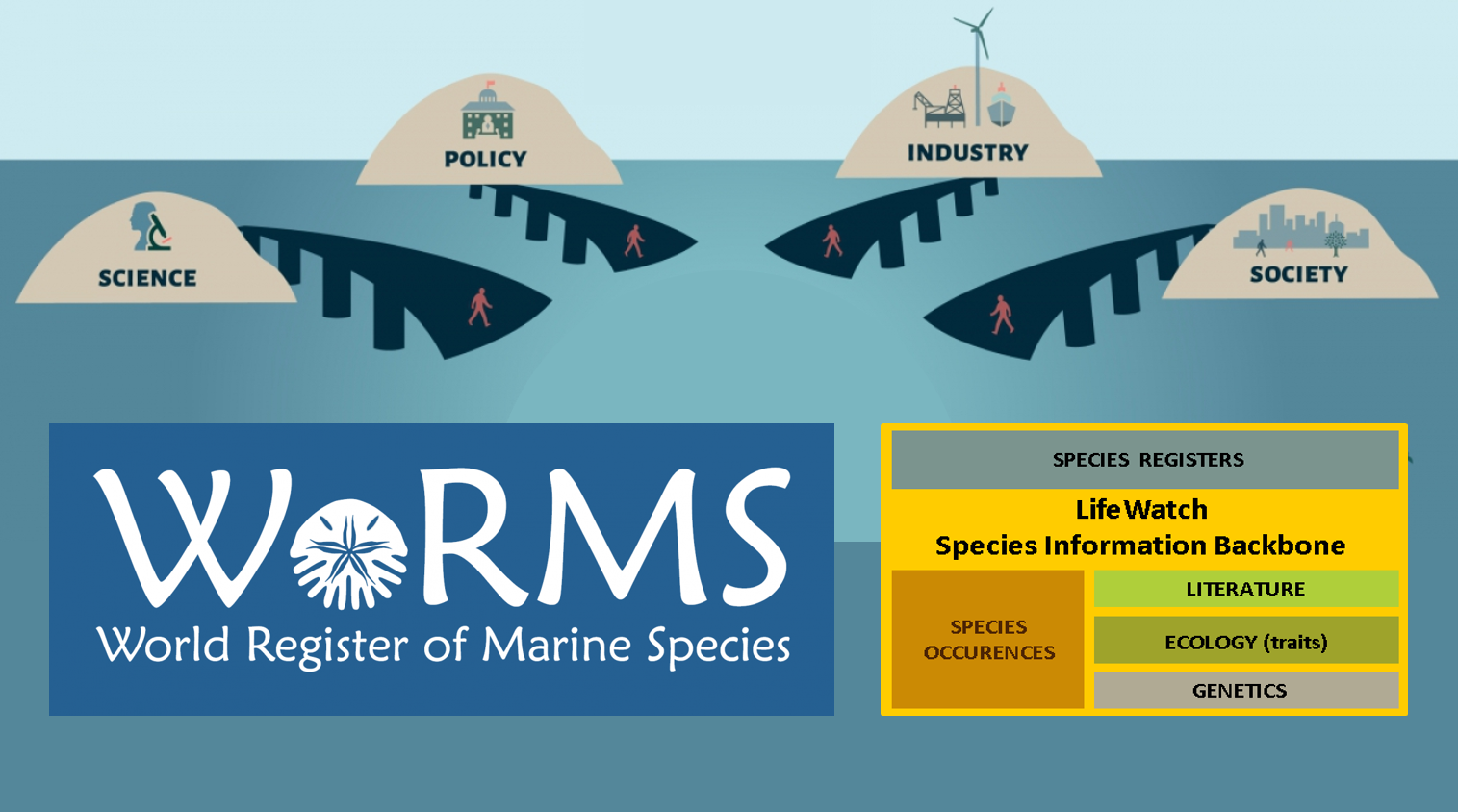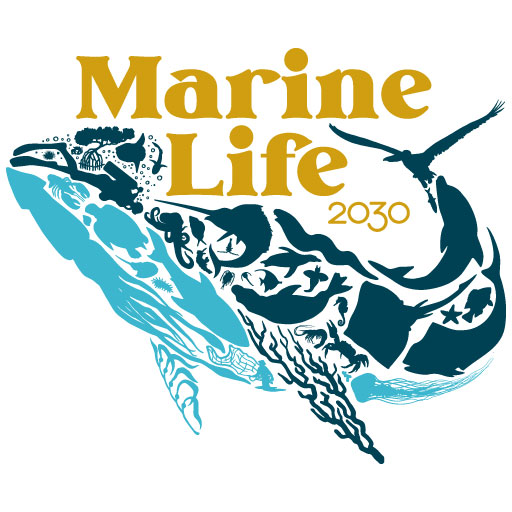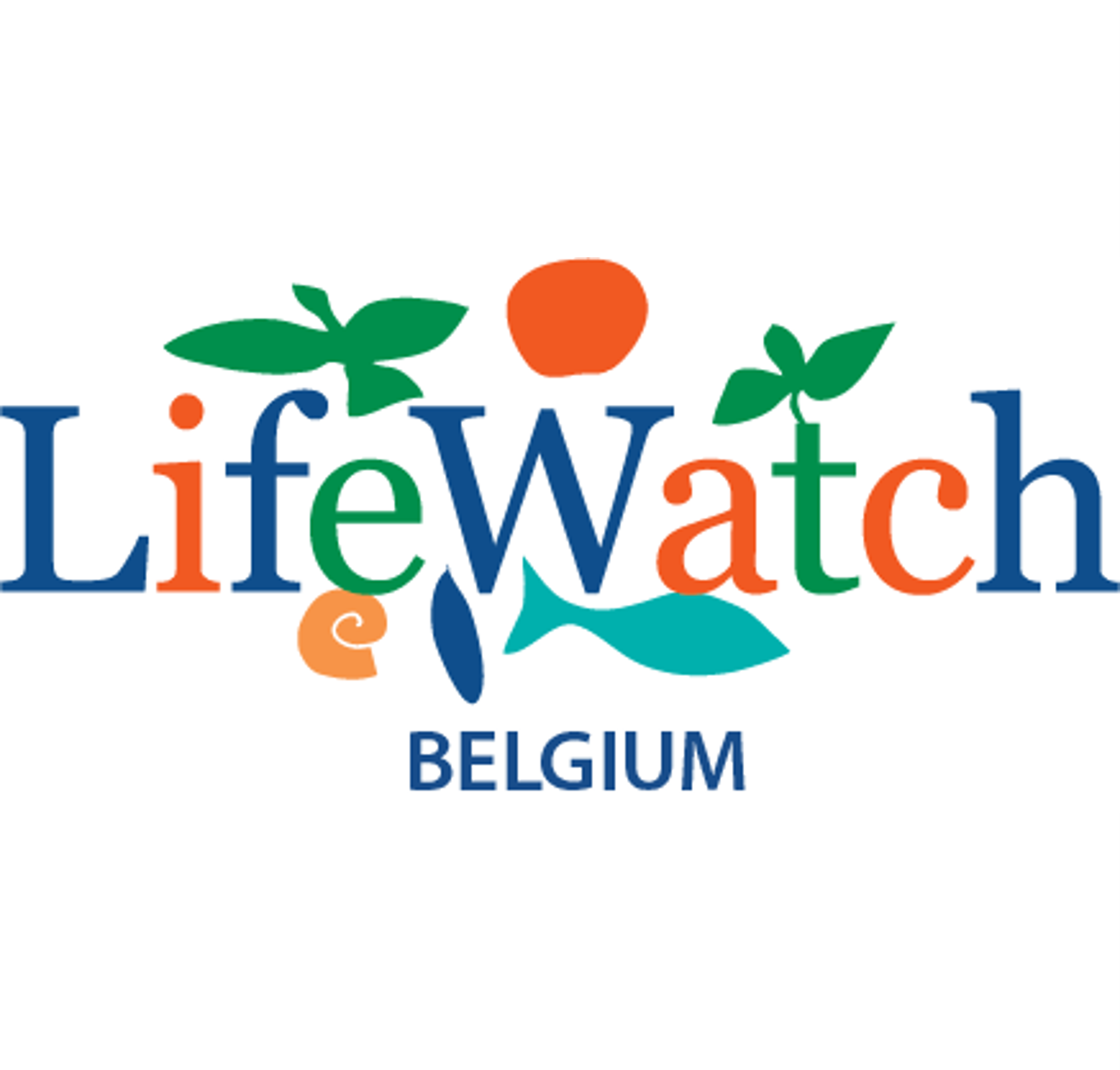Publication date: February 23rd 2023

Users of the World Register of Marine Species are manifold, both in their backgrounds as well as how they use WoRMS. We’ve already talked about the references to WoRMS made in scientific literature (see Story 11), and the potential uses that are still hiding in the database, given some extra data mining activities (Story 10 & Story 5).
Many people, institutes and projects make use of the available web services that WoRMS offers. So far, we have 85 major users in this category, ranging from museums to EU-projects to citizen science initiatives. These are the ones that have officially informed us that they are using the WoRMS services, although we believe that there are many more out there who just have not informed us on this. That is perfectly OK as our services are ‘out there’ for everyone to use, no strings attached except for following our Terms of Use.
Next to those using our web-services, there are also a number of people and organizations that receive a monthly copy of the taxonomic content of WoRMS, when the web services do not fully serve their specific needs. With each request for download, detailed information needs to be provided on the intended usage of the data. All requests are evaluated by members of the Steering Committee, and, where possible alternatives are available, these are presented to the requesters. Preference is always given to the use of the web services, as these provide ‘live’ access to the content of WoRMS, whereas a monthly download is quickly outdated due to the 24/7 activity on WoRMS (Story 2).

Quadruple helix - users from all actors in the innovation system
Science
A rather recent user of WoRMS that caught the attention of the Data Management Team (DMT) is FathomNet. FathomNet is an open-source image database that can be used to train, test, and validate state-of-the-art artificial intelligence algorithms to help us understand our ocean and its inhabitants. It is fascinating to see how the core taxonomic work of over 300 editors is indispensable in state-of-the-art artificial intelligence algorithms, which aim to establish a reference dataset for images of ocean life. This is just one of the many examples of initiatives using WoRMS as their taxonomic backbone or for internal data management and quality control check for in-house species lists, in order to make sure they are using the most recent and up-to-date marine taxonomy.
Policy
Just last year, preparations started for the United Nations Third World Ocean Assessment (WOA 3). The DMT represented WoRMS and, in parallel, MarineRegions and OBIS in one of the first round regional workshops, emphasizing the importance of collaboration with, and involvement of, major marine data systems in such a global exercise as the World Ocean Assessment. The involvement of WoRMS, MarineRegions and OBIS in this preparation workshop followed the collaboration within the Second WOA, where the DMT supported a number of involved researchers of two chapters in their search for global numbers on marine biodiversity, and connecting several components of the LifeWatch Species Information Backbone. See also: Assessing the state of the oceans.
Industry
Environmental responsibility is a hot topic. To fulfill this responsibility, the Brazilian oil and gas magnate, Petrobras, is carrying out extensive environmental monitoring. The information from these monitoring activities is stored in their private environmental database and, in collaboration with Brazilian universities, used in environmental licensing and decision-making. Within this environmental database program, the WoRMS plays an important role in the standardization of their biological data. See also: Petrobras: where industry and science touch.
A more recent example is the collaboration between the WoRMS Data Management Team with BASF SE, a German multinational chemical company and one of the biggest chemical producers in the world. For patent applications and legal issues, it is important for BASF to collect and analyse biodiversity data to help answer questions such as: where exactly do organisms live, in which environment do they mainly live, and what is their genetic code? For this specific request, both WoRMS and OBIS joined forces to assist BASF. The WoRMS DMT also benefited from this collaboration, as interactions with industry enabled us to learn about user needs and pitfalls for less experienced users. In the end, BASF could, in addition to other outcomes, demonstrate that public statements by some groups based on the occurrence of digital sequences in patent publications were premature and sometimes even incorrect after considering expertise from all trades, patent and intellectual property, as well as marine organism experts like the WoRMS crew. See also: How WoRMS and OBIS guided BASF as a lighthouse.
Society
Questions on WoRMS do not just come from science, industry and policy. The Data Management Team also receives a wide variety of questions from several institutions that serve society in the widest sense of the word. It would not be the first time that the DMT has been asked to assist in obtaining usage rights to the images in WoRMS for use in teaching material, educational books or as an illustration for a poem. The DMT has also had its share of questions from students tackling their homework, or quiz-programs double-checking facts before deciding to use a specific question in a quiz. Requests for interviews linked to a specific marine theme have passed the info-mail box as well, and where possible, the DMT explores availability and willingness of the Steering Committee to engage in this. This has, for example, already resulted in interviews for BBC Future, Nautilus, BB4 Radio and The Conversation, and the 'Oceans' poster, which was published by The Open University to accompany the BBC Blue Planet II documentary series, which mentions WoRMS. See also: WoRMS featured in Blue Planet II.
With very few exceptions (e.g. certain images and the content of AlgaeBase), all WoRMS content is open-access. WoRMS is created and driven by the incalculable time- and expertise-contributions of our editors, and the Data Management Team (DMT) at the host institute, the Flanders Marine Institute (VLIZ). It is supported by intermittent funding, obtained through submission proposals to research funding agencies, foundations and institutes. As in many situations, “many a little makes a mickle.” As a user of WoRMS, you can also make small financial contributions which will be used to support experts in improving the overall content of WoRMS. More information on how this can be done is available at http://www.vliz.be/en/support-worms-editors and in Story 12.
References:
- Schütz, F.; Heidingsfelder, M.L.; Schraudner, M. (2019). Co-shaping the Future in Quadruple Helix Innovation Systems: Uncovering Public Preferences toward Participatory Research and Innovation. She Ji: The Journal of Design, Economics, and Innovation 5(2): 128-146. https://doi.org/10.1016/j.sheji.2019.04.002
Contact
WoRMS Data Management Team - info@marinespecies.org
Acknowledgements:
This celebration and series of news messages initiated by the Data Management Team (DMT) would not have been possible without the collaboration of the WoRMS Steering Committee (SC) & voluntary contributions by many of the WoRMS editors.
The work of the DMT and many WoRMS-DMT-related activities are supported by LifeWatch Belgium, part of the E-Science European LifeWatch Infrastructure for Biodiversity and Ecosystem Research. LifeWatch is a distributed virtual laboratory, which is used for different aspects of biodiversity research. The Species Information Backbone of LifeWatch aims at bringing together taxonomic and species-related data and at filling the gaps in our knowledge. In addition, it gives support to taxonomic experts by providing them logistic and financial support for the organization of meetings and workshops related to expanding the content and enhancing the quality of taxonomic databases.
WoRMS – as ABC WoRMS – is an endorsed action under the UN Ocean Decade.
Note: as is the case for previous stories and their highlighted examples, many more examples are available within WoRMS. The highlighted examples are either well-known to the Data Management Team through close interactions with the related editor-groups or through discussions within the Steering Committee. It is by no means the intention of the DMT to favour any group or species over another. The names of all species are equally important to be documented within WoRMS.



